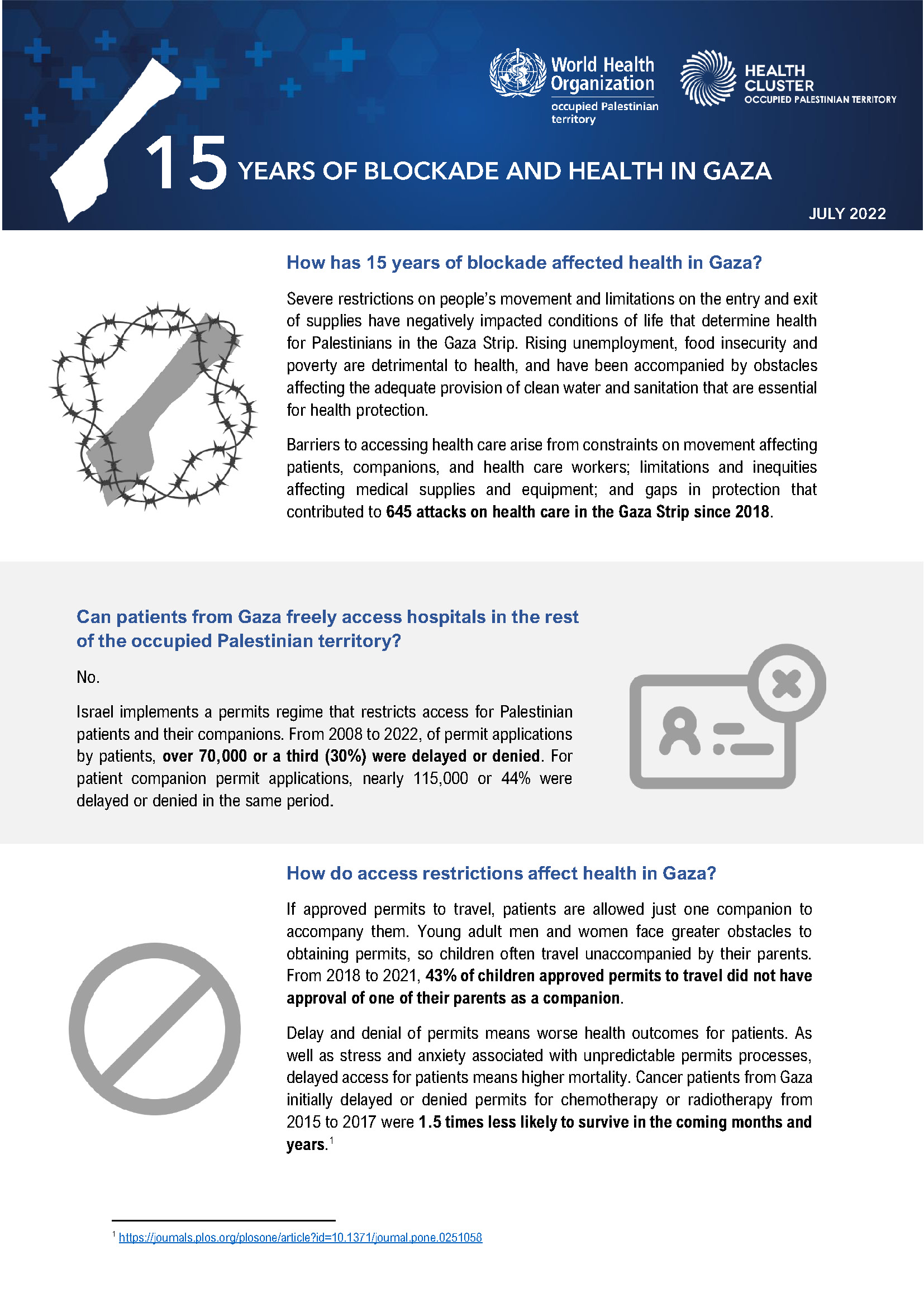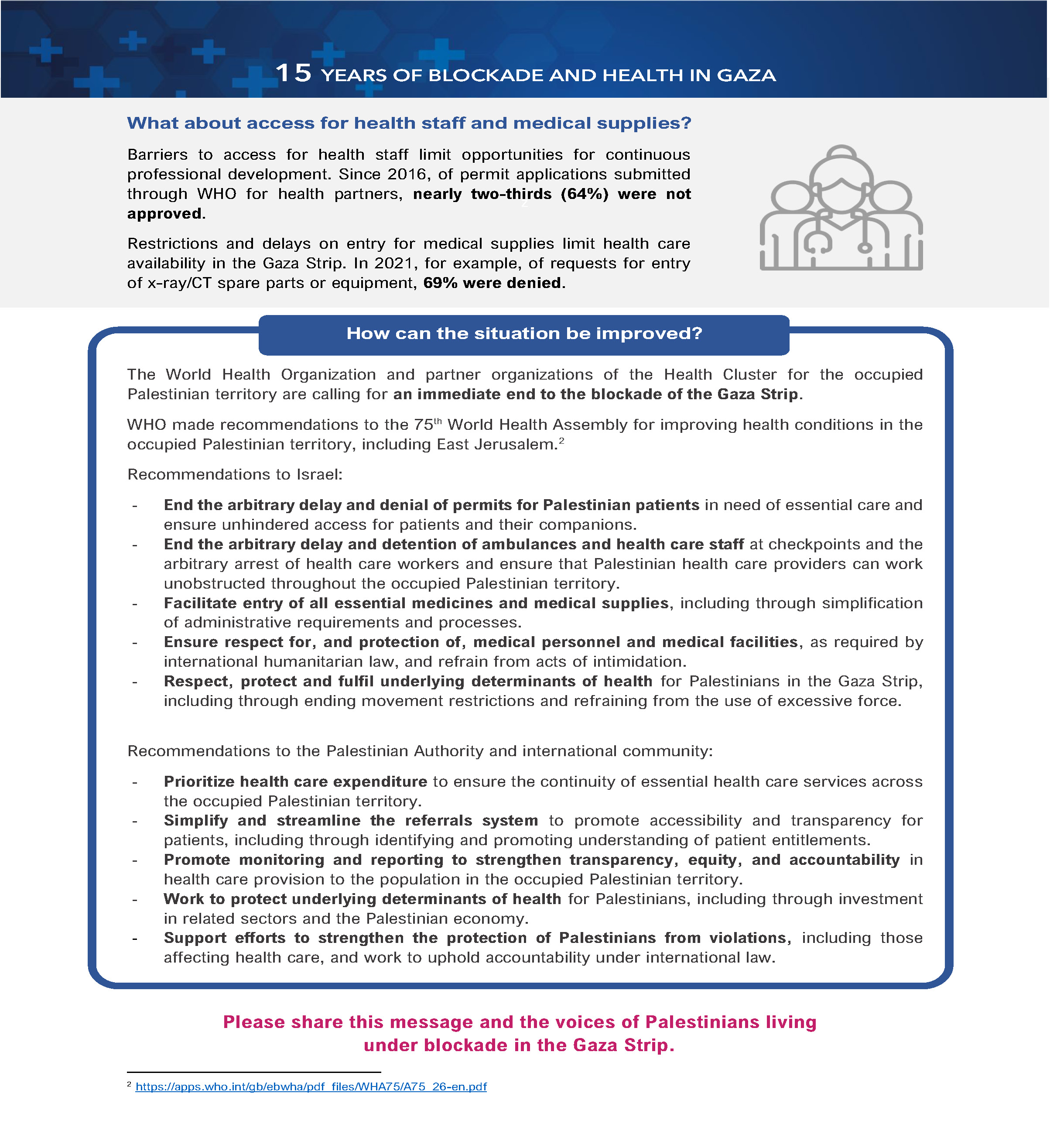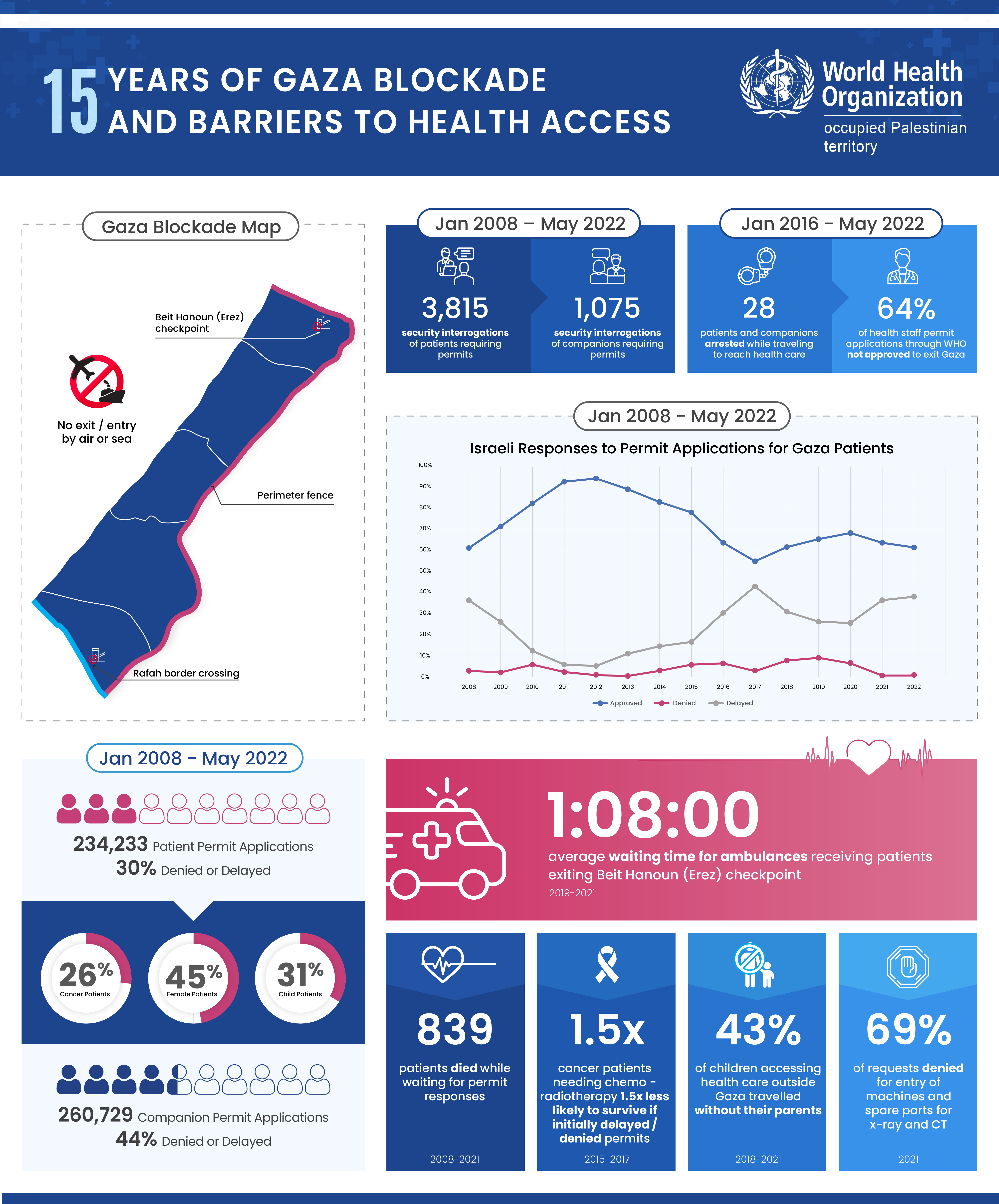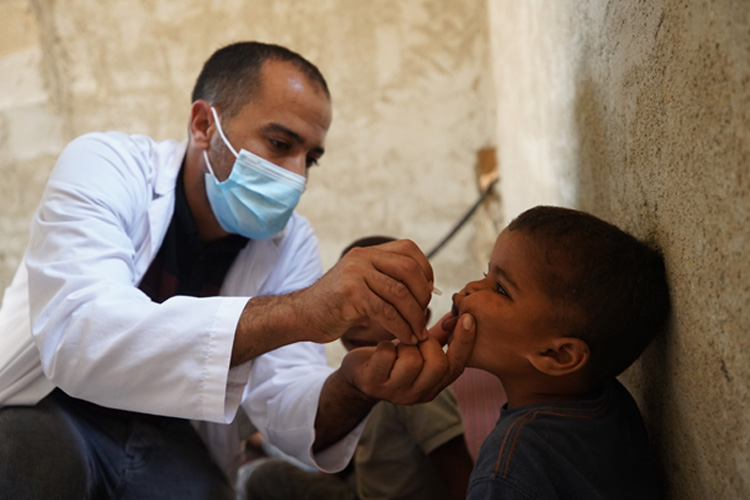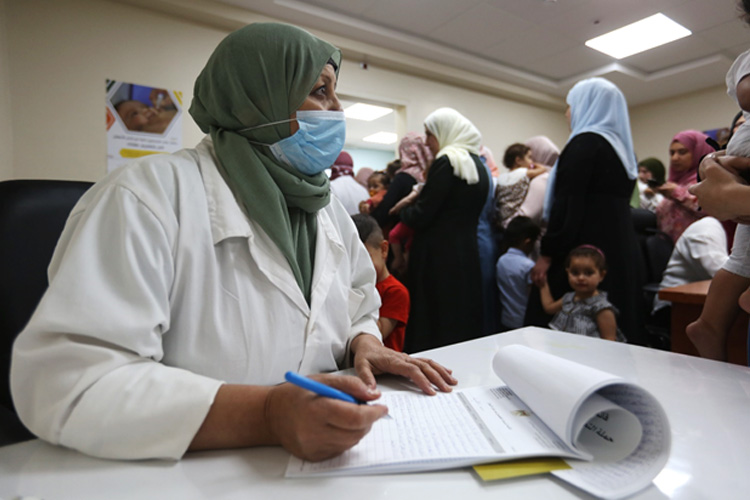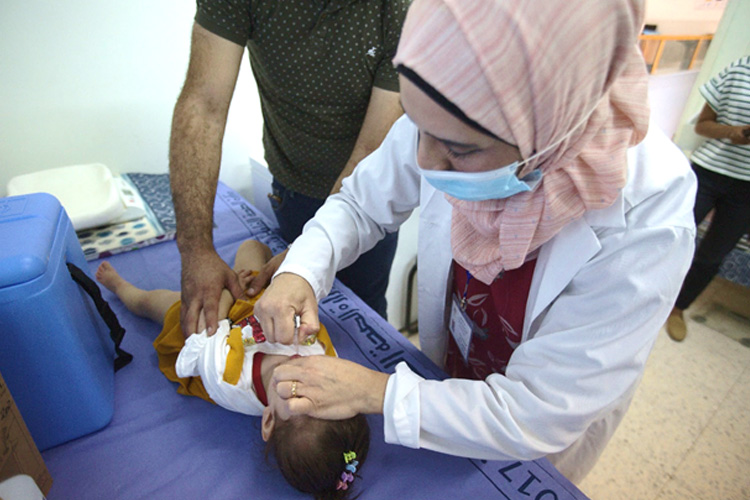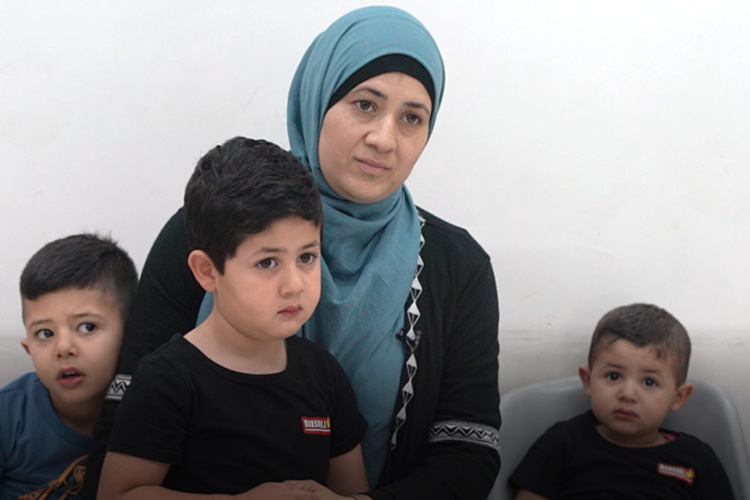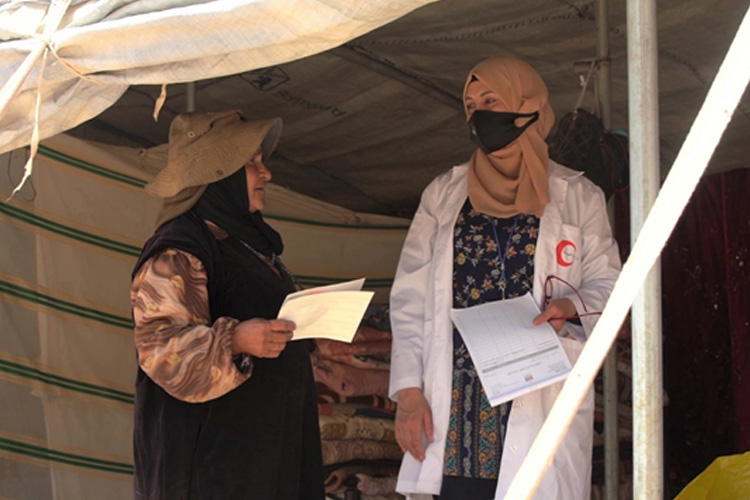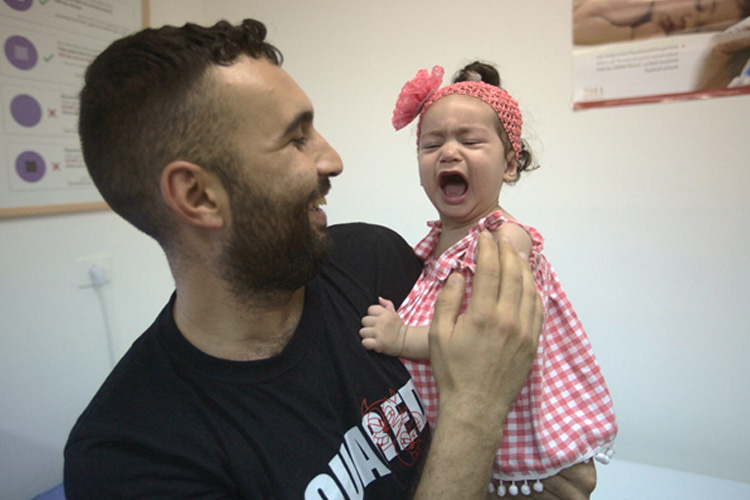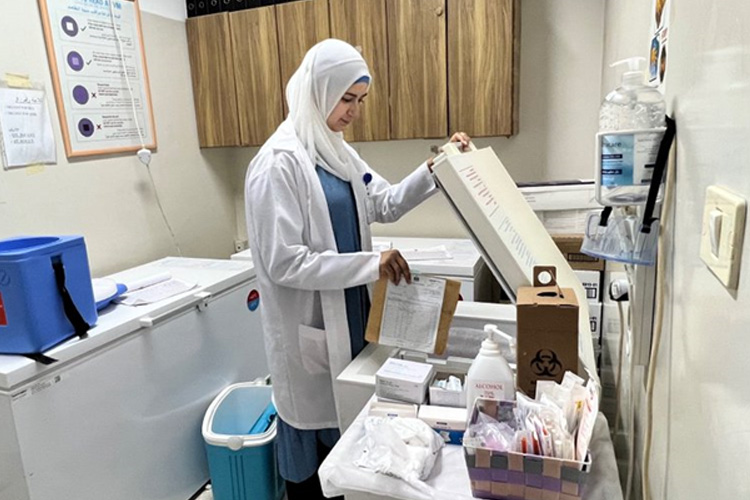5-year-old Ahlam still awaiting critical operation after she was twice prevented access
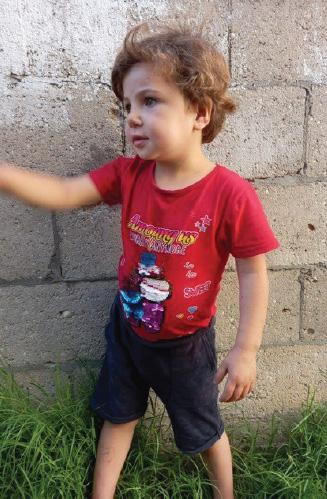 May 2022 - Ahlam is a 5-year-old girl born in Beit-Lahia in the north of the Gaza Strip.
May 2022 - Ahlam is a 5-year-old girl born in Beit-Lahia in the north of the Gaza Strip.
Since she was six months old, Ahlam’s family noticed she was not as responsive as other children her age and suspected that a problem with her hearing. They took her to two charitable organizations in the Gaza Strip, Atfaluna and Hamad Hospital in Gaza City, who examined her hearing and diagnosed Ahlam with partial hearing loss.
A year ago, Ahlam started to face further problems with her ears. Her grand-mother explained.
"Ahlam had discharge from both her ears, which had a foul smell. We took her to Beit Hanoun Hospital, where they diagnosed her as having an infection in her ear and treated her with antibiotics. Initially it helped and she improved, but then she kept getting the infection again and again."
Ahlam was seen by ear, nose and throat (ENT) specialists at Beit Hanoun Hospital, who advised her family that she should have surgery (removal of a part of bone near the ear called the mastoid process) to prevent complications of repeated middle ear infections. Because of lack of appropriate equipment in the Gaza Strip, she was referred to St Joseph Hospital in East Jerusalem. Although the hospital is within the occupied Palestinian territory, Ahlam would need a permit to exit Gaza and reach her appointment.
In December 2021, the family received financial coverage from the Palestinian Ministry of Health for surgery in Egypt. However, they could not afford to travel for the treatment.
"We did not travel to Egypt because we do not have money for that," Ahlam’s grandmother explained." Ahlam’s father works as a labourer in the fields. He earns 20 shekels a day [just under $6 a day]. We get some support from a Qatari programme for poor families [in the Gaza Strip]. It is expensive to travel to Egypt and the Ministry of Health referral doesn’t cover all associated costs. We requested to change the destination to Jerusalem.” Ahlam lives with her father, mother and 3-year-old brother in a room in the house of her extended family.
From January to May, Ahlam received three hospital appointment for St. Joseph Hospital in East Jerusalem. For the first appointment, the family was advised there was not sufficient time for processing of a permit request by Israeli authorities and so did not apply for a permit. For appointments in April and May, the family received no response from Israeli authorities to their permit application by the date of Ahlam’s hospital appointment – meaning she was unable to travel for care.
|
Appointment Date |
Permit application date |
Destination |
Israeli response |
|
23/01/2022 |
Nil |
St. Joseph Hospital- Jerusalem |
No application |
|
06/04/2022 |
22/03/2022 |
St. Joseph Hospital- Jerusalem |
Under study (delayed) |
|
18/05/2022 |
13/04/2022 |
St. Joseph Hospital- Jerusalem |
Under study (delayed) |
|
27/07/2022 |
07/07/2022 |
St. Joseph Hospital- Jerusalem |
Awaiting response |
15 YEARS OF BLOCKADE AND HEALTH IN GAZA
Seven people you meet during a polio campaign
28 June 2022 - Between Saturday 18 June and Wednesday 23 June, health workers across Bethlehem and Jerusalem governorates, supported by WHO, UNICEF and UNRWA, gave an extra dose of polio protection to children under five during round two of the polio vaccination campaign.
Palestine has been polio-free for more than 25 years, but the regional risk of poliovirus is increasing. Following the detection of circulating vaccine-derived poliovirus type 3 (cVDPV3) in sewage outflow in Wadi Alnar site, where there is a junction between wastewater coming from inside the green line with wastewater coming from Bethlehem and Jerusalem, the Ministry of Health launched a preventative vaccination campaign to boost children’s immunity in those governorates.
The campaign saw children vaccinated at Ministry of Health and UNRWA health facilities, and through mobile health teams working in remote areas. The occupied Palestinian territory is a diverse place, in environment and culture, and though the campaign covered just two governorates, its story can be told in the faces and voices of those who took part.
Palestinian Ministry of Health launches round two of polio vaccination campaign in Bethlehem and Jerusalem
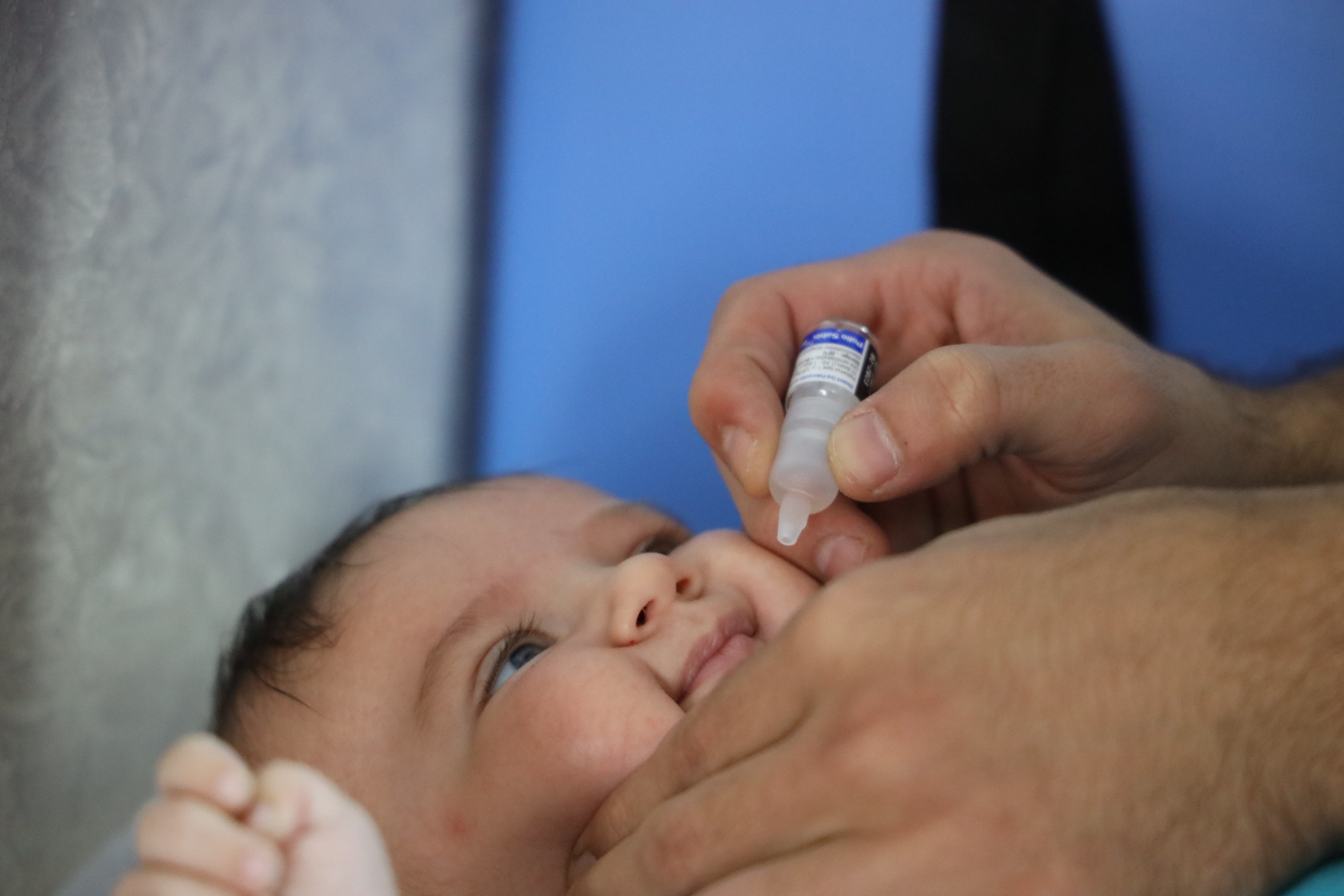
16 June 2022,Ramallah - On Saturday 18 June, the Palestinian Ministry of Health will launch round two of a polio vaccination campaign targeting all children under age five in Bethlehem and Jerusalem. This is a supplementary immunization campaign designed to give children under age five an extra dose of protection from poliovirus, on top of their regularly scheduled vaccinations.
Vaccination, using bivalent oral polio vaccine (bOPV), is free and will be offered at maternal and child centres and UNRWA centres throughout Bethlehem and Jerusalem between Saturday 18 June and Tuesday 21 June.
Palestine has been polio-free for more than 25 years, thanks to a robust routine immunization programme and a strong culture of vaccine acceptance. But the regional risk of poliovirus is increasing. Following the detection of circulating vaccine-derived poliovirus type 3 (cVDPV3) in sewage outflow in Wadi Alnar site, where there is a junction between wastewater coming from inside the green line with wastewater coming from Bethlehem and Jerusalem, the Ministry of Health took the decision to launch two rounds of a preventative vaccination campaign to boost children’s immunity in the two areas deemed most at risk: Bethlehem and Jerusalem.
“All children under age five, regardless of their immunization status, can benefit from an extra layer of protection against poliovirus. There is no fixed number of times a child should be vaccinated with oral polio vaccine: each dose gives additional protection, on top of the regularly scheduled polio vaccination. I strongly encourage every parent to make it a priority to vaccinate their children in round two of this campaign, even if they missed round one – both for their sake, and for Palestine,” said Dr Mai al-Kaila, Minister of Health, Palestine.
The vaccination campaign is being carried out with support from WHO, UNICEF and UNRWA’s Palestine country offices.
“Keeping Palestine polio-free is a top priority for WHO and its partners. We are supporting the Ministry of Health to ensure that all children under age five have an opportunity to get an extra dose of protection against poliovirus. I urge all parents to bring their children for vaccination during this campaign and to keep their routine vaccinations up to date to protect them from all vaccine-preventable diseases,” said WHO occupied Palestinian territory Representative Dr Rik Peeperkorn.
“Every child has a right to a life free from polio and other vaccine-preventable diseases. To eliminate polio, every child in every household must be vaccinated. UNICEF remains committed to supporting the Palestinian Ministry of Health to reach all children. Everyone must play a role in keeping Palestine free of this debilitating disease,” said UNICEF’s Special Representative to the State of Palestine Lucia Elmi.
Round two starts on a Saturday to make it easier for working parents to get their under-fives to health centres for vaccination. As with round one, parents do not need to bring children’s vaccination records to clinics, but if they do, those records will be updated.
Children living outside of Jerusalem and Bethlehem do not currently require an additional dose of oral polio vaccine. If their routine immunizations are up to date, they are well protected from poliovirus and other vaccine-preventable diseases.
The vaccination campaign in Palestine is part of the global effort to eradicate poliovirus, spearheaded by the Global Polio Eradication Initiative.








